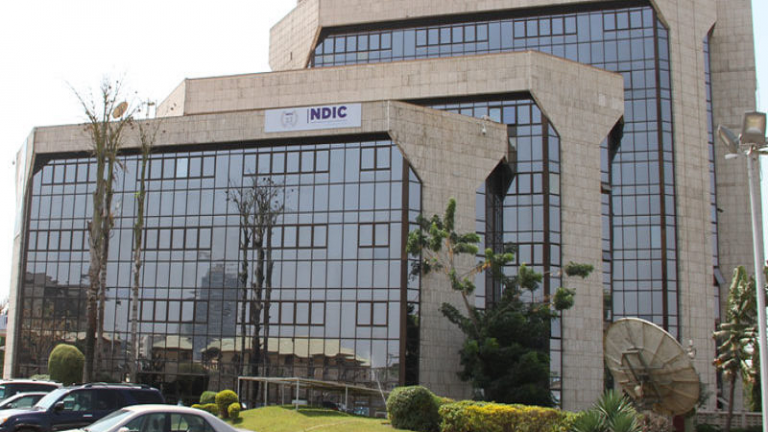
In line with the goal to consolidate Nigeria’s financial industry, the Nigeria Deposit Insurance Corporation (NDIC) has been collaborating with the Central Bank of Nigeria (CBN), to uphold regulatory sanctions against financial institutions in the country.
The NDIC said it has liquidated at least 500 deposit money, microfinance, and primary mortgage banks whose licenses were revoked by the Central Bank of Nigeria, NAN reports.
The corporation also disclosed that it was currently settling the liquidation dividends of depositors of the banks.
Register for Tekedia Mini-MBA edition 19 (Feb 9 – May 2, 2026): big discounts for early bird.
Tekedia AI in Business Masterclass opens registrations.
Join Tekedia Capital Syndicate and co-invest in great global startups.
Register for Tekedia AI Lab: From Technical Design to Deployment (next edition begins Jan 24 2026).
Galadima Gana, the Director, Insurance and Surveillance Department of the NDIC, revealed this at the 2021 Financial Correspondents Association of Nigeria workshop on Friday in Ibadan.
According to Mr Gana, the corporation had closed 325 MFBs, 50 PMBs, and 49 DMBs whose licenses were revoked by the CBN with minimal effects on the stability and confidence in the banking sector.
Mr Gana also mentioned that NDIC had cumulatively paid N8.27 billion to insured depositors of DMBs, N3.38 billion to insured depositors of MFBs, and N11 billion to insured depositors of PMBs.
He stated that the payment to uninsured depositors, creditors, and shareholders of DMBs cumulatively stood at N100.85 billion, N1.27 billion, and N4.83 billion, respectively.
He said this represented 51.07 per cent, 73.13 per cent and 92.81 per cent of the respective amounts.
The Managing Director of the NDIC, Bello Hassan, explained on the sidelines of the event that the corporation was settling the liquidation dividends of depositors of the banks.
”One of our mandates is also to liquidate license deposit institutions whose deposit has been revoked by the CBN. So you have various categories that are currently in liquidation, the Deposit Money Banks (DMBs), Micro Finance Banks (MFBs), and Primary Mortgage Banks (PMBs),” Mr Hassan explained. “As liquidator, what we do immediately there is (a) revocation of license is to pay the maximum insured amount.”
After that, he stated the corporation “proceeded to recover the loans and advances” granted by the liquidated institutions before revocation and “also realize the assets” left behind “so that we can pay it to the depositors.”
Mr Hassan added, “We only pay the maximum insured amount at the point of liquidation then, subsequently, begin to pay depositors and after that, we wind up, but the payment is currently ongoing.”
In 2018, over 153 insolvent MFBs and six PMBs got caught in CBN’s sanitation exercise and eventually lost their operating license. Most of the banks were battling with high level of non-performing loans which resulted in high portfolio risk, impairing their capital and liquidity.
The number of financial institutions impacted by the CBN’s cleanup exercise has increased since then. The apex bank, in line with its recapitalization and consolidation ultimatum, added more microfinance banks and mortgage banks to the list of those to be axed.
The recapitalization requirement for tier 1 Unit MFBs is N100 million by April 2020 and N200 million by April 2021. Tier 2 Unit MFBs are required to meet N35 million and N150 million by April 2020 and April 2021 respectively. Also state MFBs are required to increase their capital to N500 million and N1 billion by April 2020 and April 2021 respectively.
However, the CBN was restrained by the Nigeria’s House from enforcing the deadline of the recapitalization due to the covid-19-induced economic strains that have largely impacted Nigeria’s financial sector.
Although the NDIC has complemented the CBN in sanitizing the financial sector and has ensured that affected depositors get their money back, many depositors lament that they hardly get half of their funds trapped in the troubled banks.



